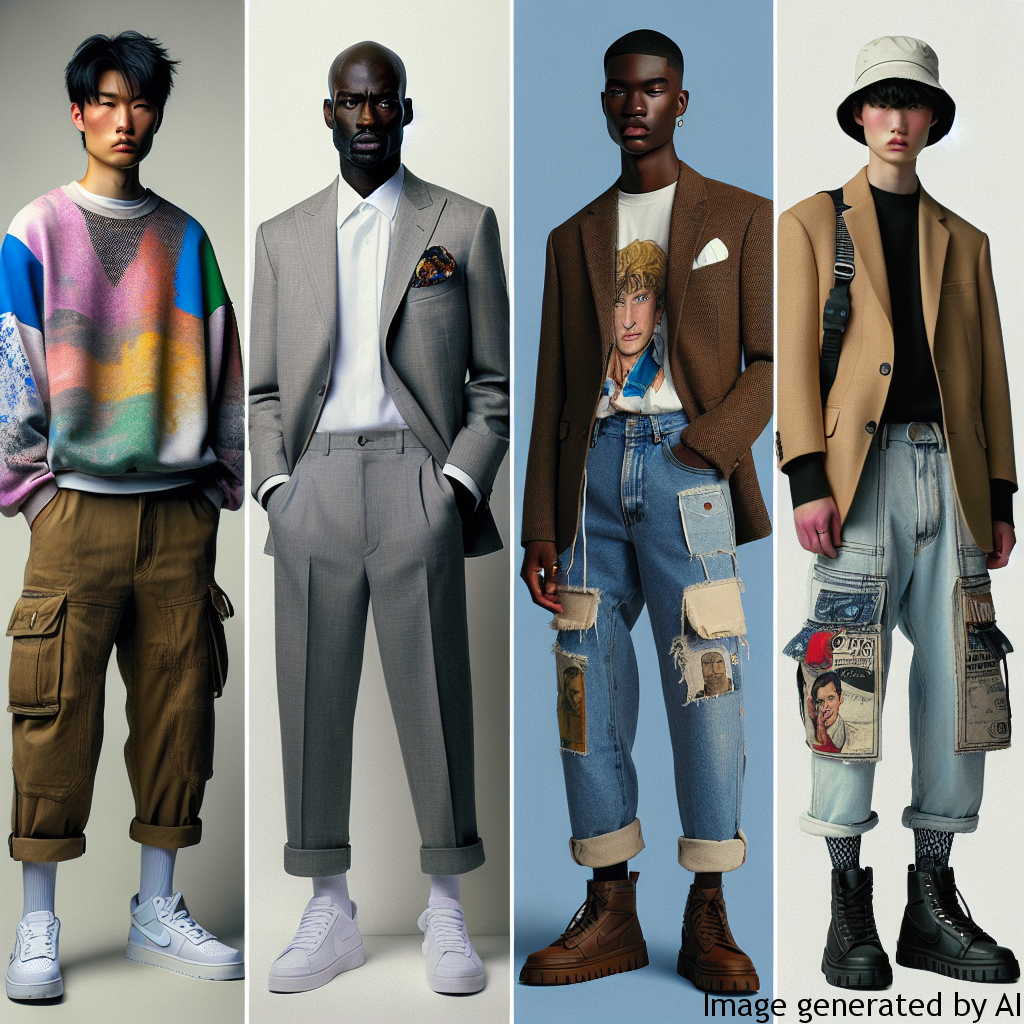Introduction
Modern men’s fashion icons play a crucial role in establishing trends and influencing male sartorial choices around the world. These icons embody a blend of originality, confidence, and style that resonates with many men and goes beyond mere apparel choices. They also challenge traditional gender expectations, considerably influencing men’s psychological well-being and their actions in society.
Gender Expectations and Their Impact on Men’s Psychological Health
Gender expectations arbitrarily assign roles, behaviors, and attitudes to individuals based on their sex. Men have always been under societal pressure to conform to traditional masculine standards—competition, emotional restraint, aggression, and self-reliance. These expectations can be restrictive and affect men’s psychological well-being negatively.
The Connection Between Masculine Norms and Mental Health
Studies suggest that conforming to societal expectations of masculinity can correlate with issues like depression, anxiety, and lower self-esteem. Adherence to tough masculinity norms often results in men avoiding seeking help even when facing serious psychological distress, further exacerbating their issues.
Men’s Fashion Icons and Their Role in Promoting Psychological Well-Being
Modern men’s fashion icons reimagine masculinity by deviating from its traditional norms. They promote self-expression, sensitivity, and vulnerability through their fashion choices—traits that have been traditionally connected to femininity—and inadvertently encourage men to overcome the so-called ‘masculinity box’ that might trigger mental health problems.
Examples of How Gender Roles Can Influence Men’s Lives
David Bowie, in his androgynous Ziggy Stardust persona, challenged traditional gender boundaries, influencing countless men to explore their own identity beyond prescribed masculinity norms. Pharrell Williams, widely recognized for his eclectic fashion sense, has also defied common fashion norms for men, inspiring others to express themselves more freely and confidently. K-pop icons like G-Dragon and BTS frequently experiment with gender-fluid fashion and ignore cultural taboos, guiding young men to question rigid gender roles.
Tips on Enhancing Psychological Health Considering Gender Roles
Modern men’s fashion icons advocate redefining masculinity norms, showing men that it’s okay to diverge from traditional expectations. Men must be encouraged to express their individuality, emotions openly, and seek out help when necessary. Psychological health improvements come from a blend of self-confidence, openmindedness, resilience, and coping skills. Participating in activity-based group therapy or counselling can provide men with a secure, non-judgmental space to express their feelings and challenge harmful stereotypes.
Conclusion
Modern men’s fashion icons considerably influence men’s perceptions of style and self-expression. Through their personal style and defiance of traditional masculinity norms, they propose alternative masculinity expressions that inspire men globally. Consequently, defying rigid gender roles and embracing individuality leads to a healthier psychological well-being among men, empowering them to live richer, more fulfilling lives.

